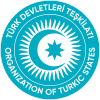Idealism (Turkey)
This article has multiple issues. Please help improve it or discuss these issues on the talk page. (Learn how and when to remove these messages)
|
Idealism (Template:Lang-tr), also known as Türkeşism (Template:Lang-tr) is a nationalistic ideology developed by Alparslan Türkeş and the Nationalist Movement Party as a principle of the Nine Lights Doctrine.[1][page needed][2][3][4]
The philosophy of Idealism was largely influenced by the ideas of Ziya Gökalp, a Turkish sociologist, writer, and poet. Gökalp believed that the Turkish people needed to create a new national identity that was distinct from their Ottoman past and grounded in their own cultural, historical, and linguistic traditions. He argued that this new identity ("Turkishness") should be based on the principles of Islam and Turkish nationalism, and that it should be promoted through education and cultural institutions.[5][6]
Idealism has had a significant influence on Turkish political and intellectual thought, and its ideas continue to shape the country's political and cultural landscape today.
Origin
The origins of the name go back to the terms "millî mefkure (ülkü)" used by Ziya Gökalp and "millî ülkü" used by Nihal Atsız and Pan-Turkists. 1950–1953 it was used by Turkish Nationalists Association during its years. Ülkü means "ideal" in terms of the word meaning. Ülkücülük is the equivalent of "idealism".[7]
On 3 May 1944, a large group protested the prosecution of Nihal Atsız in Istanbul as well as in Ankara[8] and his friends marched from the Ankara courthouse to Ulus square. Although the Turkism movement was a national policy in the state levels during the time of Atatürk, it begins with this event that it became a mass idea.[citation needed]
Idealist political groups
See also
References
- ^ O'Sullivan, John (25 November 2006). The President, the Pope, and the Prime Minister: Three Who Changed the World. ISBN 9781596980341.
- ^ Alparslan Türkeş, Millî Doktrin Dokuz Işık, Kutluğ Yayınları, İstanbul, 1975
- ^ Taslaman, Caner (7 January 2011). Küreselleşme Süreci̇nde Türki̇ye'de İslam. ISBN 9786058808201.
- ^ O'Sullivan, John (25 November 2006). The President, the Pope, and the Prime Minister: Three Who Changed the World. ISBN 9781596980341.
- ^ "Ziya Gökalp".
- ^ "Ziya Gökalp: His Life and Works | Turkish Cultural Foundation".
- ^ "idealizm", TDK Genel Türkçe Sözlük
- ^ Landau, Jacob M.; Landau, Gersten Professor of Political Science Jacob M.; Landau, Yaʻaqov M. (1995). Pan-Turkism: From Irredentism to Cooperation. Indiana University Press. pp. 116–117. ISBN 978-0-253-32869-4.

